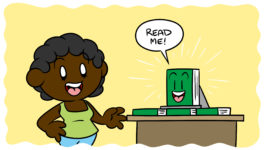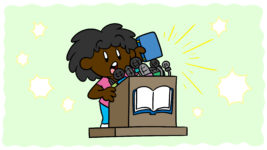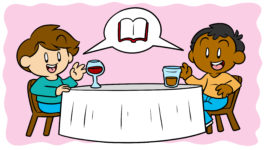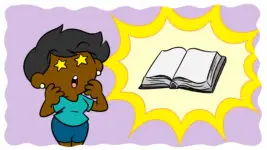When I’m not writing or agonizing over the difficulties of book marketing, I take long walks.
They’re not always meant to be long walks, but I have a habit of setting off without a clear destination in mind. I’ll rarely rely on maps, as I prefer to trust my feet – even if I have no idea where I’m going.
Walking without a clear direction is fine when I don’t have anywhere to be, but on occasion I’ll have an important meeting to attend, and I’ll be so used to meandering that I’ll end up hopelessly lost and out of time.
I often find that marketing a book online can be a similar experience – finding readers can be slow, and it’s easy to get distracted, waste time with unnecessary detours, and ultimately lose ground rather than gaining it.
Writers looking to build an online following can never underestimate the importance of a set plan.Click To TweetFor this reason, writers looking to build an online following can never underestimate the importance of a set plan. A good book marketing plan stops writers from getting lost on the way to success.
No two plans are the same, as every writer and every book is different – for some ideas of specifics, have a look at this article where we talk through some good ideas. If you don’t already have a marketing plan, we’ve got a great template that you can download for free and customize to fit your preferences.
While writing a book marketing plan, though, there are a few key questions that every writer should ask themselves to make sure that they’re taking the quickest path to their destination, instead of getting side tracked and running out of steam.
Question 1: Who is my book for?
This seems like a simple question – ideally, a writer wants everyone to enjoy their book. But while writing a plan, authors can’t afford to be vague or rely on generalizations. Figuring out your target readership means that you can focus on advertising your book in places that your readers will look.
Start with broad reader demographics and whittle them down. What genre does your book fall into? What themes does your book deal with? A story about a teenager who gains super powers is going to appeal to a different audience to a story about a middle-aged mom gaining powers.
Try to imagine the typical reader for your book, and then figure out where they live on the internet. Make a list of websites or social media groups that your potential readers might visit, and then come up with ideas for getting your book mentioned in these digital locations.
If you can focus on exactly who your potential readership is and where they hang out online, it’ll be a lot easier to contact them.
Question 2: What’s unique about my story?
Once you’ve figured out your readership, you need to know what it is about your story that will appeal to them. People care more about stories they can relate to, so try to think of what readers will identify with – that’s your hook, and it’s invaluable in figuring out how to target readers.
Your hook gives you a focus for your advertising efforts. Say, for example, that you feel a book trailer would work well for drumming up support for your book, or you’re considering advertising banners – your unique story hook needs to be front and center to catch the attention of potential readers.
Alternatively, you might be thinking about creating guest posts or interviews for websites that you know your readers visit. Figuring out your hook means that you know what to talk about to make sure that what you’re saying actually resonates with readers.
Question 3: What should I do next?
Once your book marketing plan is rolling, it’s easy to rest on your laurels and figure that as long as you keep doing what you’re doing, you’ll make it big eventually.
In reality though, a good marketing plan is adaptable, and a savvy writer will always by looking for ways to tweak their plan.
Perhaps your plan involves advertising on a website, but it turns out that those ads aren’t working as well as you’d hoped. A smart book marketer will recognize a need to change tactics.
Perhaps it turns out that your book is popular with a demographic you hadn’t considered, or a different message shines through to some readers. Constantly reviewing your plan will help you to keep your plan as efficient as possible.
Question everything
Everybody’s approach to marketing their book is going to be different, and no two books will find the same success with the same audience. For this reason, a savvy book marketer will always be looking for new techniques to get their novel in front of the people who will most want to read it.
The most crucial part of any plan is the drive to follow through on it – plenty of books have missed out on opportunities because their authors became discouraged, so keep going, continuously try new marketing approaches, and eventually you’ll find success.
Do you have any questions on how to go about building a book marketing plan? Have a look at our free template, or ask a question in the comments below.
Alternatively, feel free to let us know what worked for you, and you might just help a fellow author to figure out where they’re going wrong.
3 Questions To Ask When Writing Your Book Marketing PlanClick To Tweet




